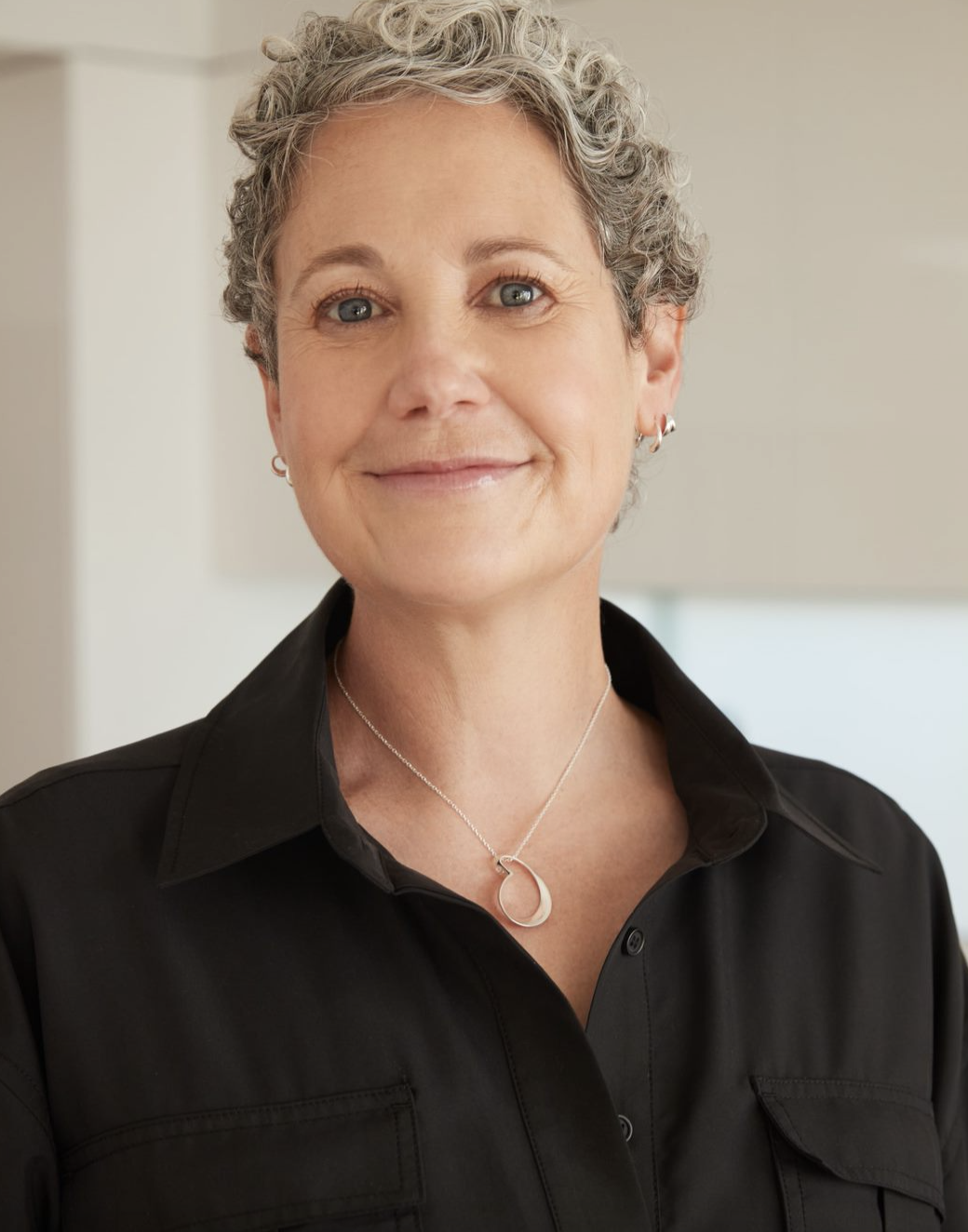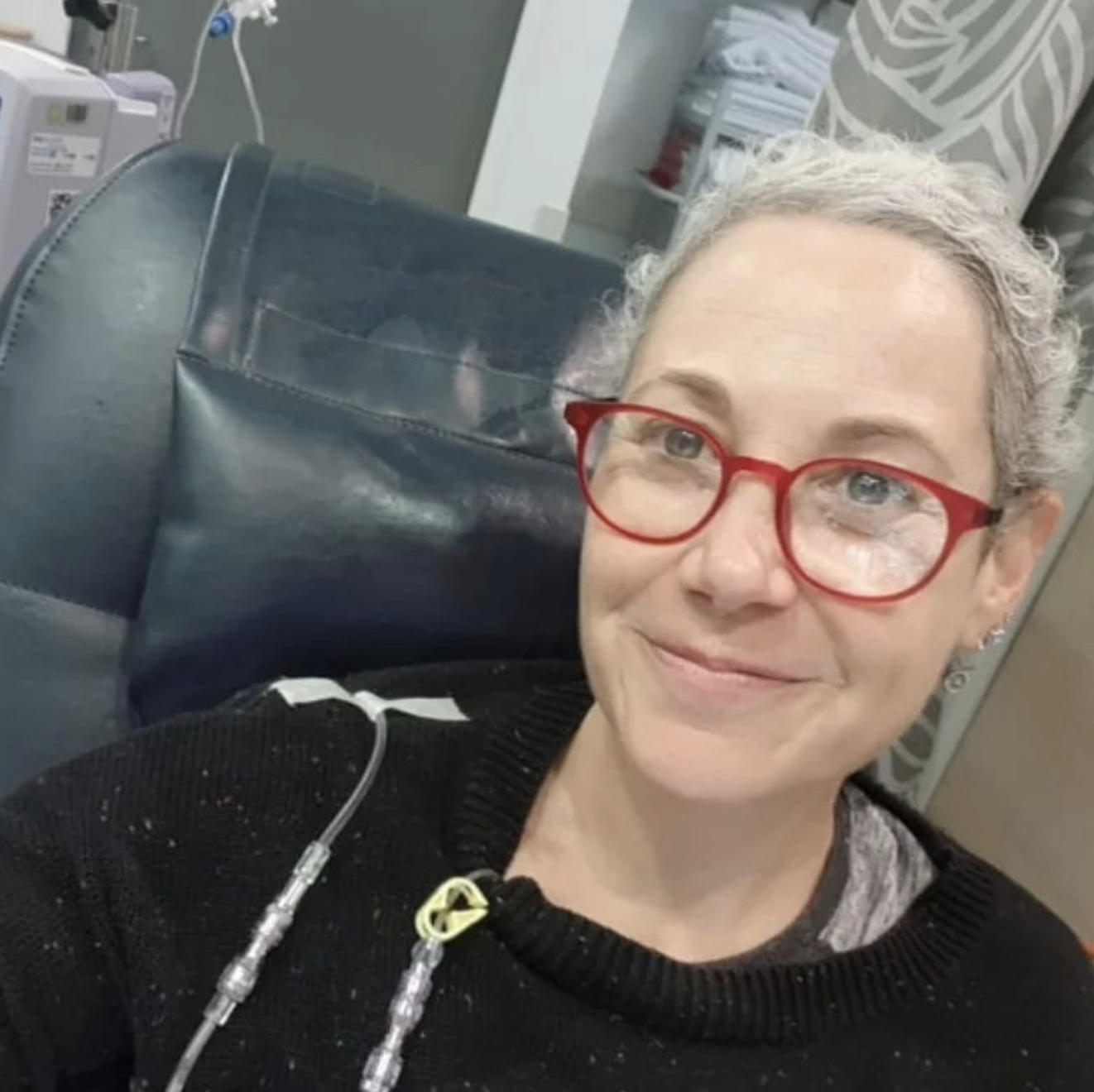Dr Siobhan O’Sullivan is Associate Professor of Social Policy and Research at UNSW Sydney. Her research has focused, among other things, on animal welfare policy and the welfare state. She is the author of ‘Animals, Equality and Democracy’ and a co-author of ‘Getting Welfare to Work’. Her latest co-authored book, ‘Buying and Selling the Poor’ has just been published with Sydney University Press.
Diagnosed with ovarian cancer in August 2020, she became involuntarily armed with the intimate knowledge of what it means to be an ovarian cancer patient. Siobhan bravely dedicates the time she has left, to speak up about the silent illness she came face to face with, some 18 months ago.
Siobhan became an OCRF Ambassador in early 2021 and is an advocate for greater knowledge and investment in ovarian cancer research. She is chemo-resistant, her ovarian cancer is aggressive, and remission is very unlikely. Here, she shares her powerful personal story of diagnosis and how it took multiple doctor visits, before one took her concerns more seriously.

Siobhan O'Sullivan featured in the 2021 Georg Jensen x OCRF campaign.
In August 2020, I was diagnosed with ovarian cancer.
Before then, I was a very (seemingly) fit and healthy person – I participated in boot camp three times a week, I also walked regularly, I have been vegan for more than 20 years. But, in mid-July 2020, I started to feel generally unwell. I told people that I was ‘out of sorts’ and at that time, my father was very unwell and close to death; I was visiting him every second day. I assumed that I was feeling stressed because of my father’s situation.
I went to my GP, who told me I was probably suffering from constipation. I accepted that diagnosis, even though I do not normally suffer from constipation. I remember saying to the doctor ‘but I am going to the toilet without any trouble’. Still, I was told to go home and take laxatives.
That weekend I felt worse by the day. I stayed in bed and made an appointment to see a different GP on the Monday. I wasn’t in pain over the weekend, but I felt a generalised feeling of being unwell. My abdomen was also bloated. I didn’t think that was significant as my abdomen had been feeling ‘thicker’ for a few months; I assumed I had put on a little bit of weight during Covid.

I now know that my so-called 'CA125' blood marker, which should sit below 25, was elevated to around the 470."
On Monday 3rd August, I saw another GP in the morning and by this time, I was really not feeling like my normal self. When I got to the doctor’s office I started crying and asked him to help me, I told him that something was very wrong. He said that he would start by assuming I have something seriously wrong and work backwards from there. He told me that it would probably end up being something minor, perhaps irritable bowel. Regardless, he started by testing for the serious things and sent me for a blood test.
That same afternoon he phoned me and said that my blood test results were showing that something is seriously wrong and that I should go to the emergency department at Royal Prince Alfred (RPA), my nearest hospital, ASAP. He said that I should pack an overnight bag as they would not let me leave until they figured out what the problem is.
At the RPA they ran more blood tests and performed at CT scan. I now know that my so-called 'CA125' blood marker, which should sit below 25, was elevated to around the 470.
In the early evening, one of the emergency room doctors came to see me. He said that they knew what was wrong and that my life was going to ‘change forever’. I asked what it was, and he said, ‘ovarian cancer’. Stage III ovarian cancer.
According to the Ovarian Cancer Research Audit, around 1,200 women will die from ovarian cancer this year. I will do everything I can not to be one of them. It may, of course, be too late for me. But that doesn’t mean it’s too late for everybody else.
Tell your mother, your sister, your daughter, and her friends ovarian cancer is silent and it is deadly. Be vigilant. Be ready to act. Perhaps most importantly, be lucky.
Siobhan’s story features in the latest Blooms Health Check magazine, out now, in stores.

Follow Siobhan O'Sullivan's personal story: Facebook & Instagram
SURVIVING OVARIAN CANCER SHOULD NOT COME DOWN TO LUCK.
Donate to the OCRF to help us support ongoing ovarian cancer research that can save the lives of future generations.
DONATE TODAY